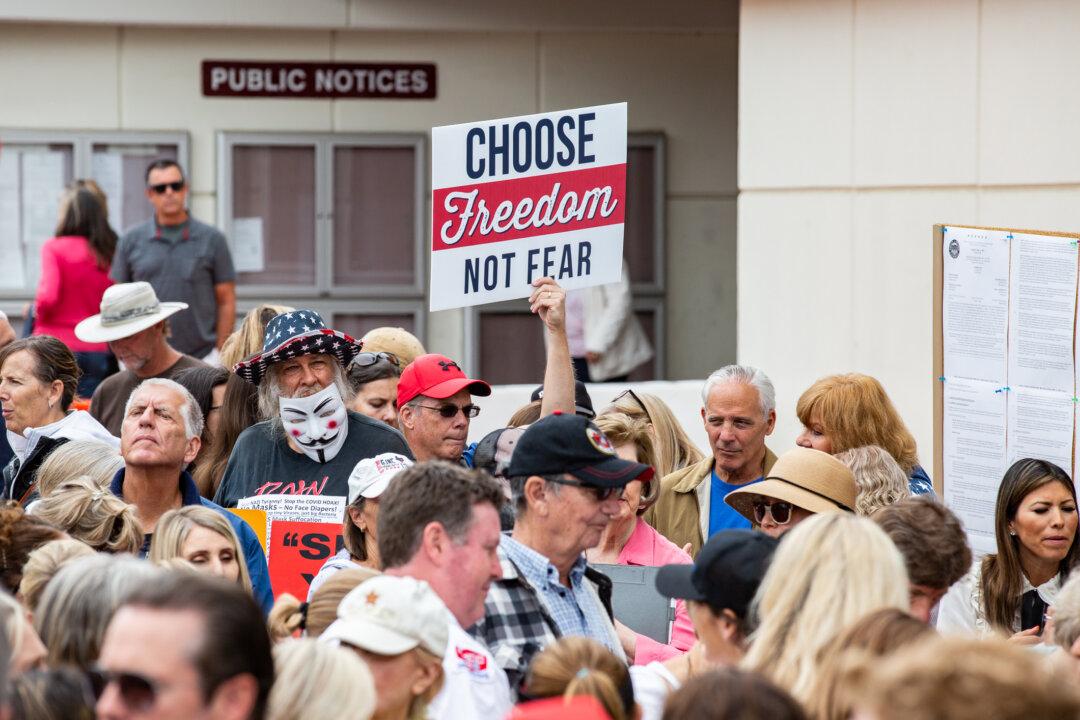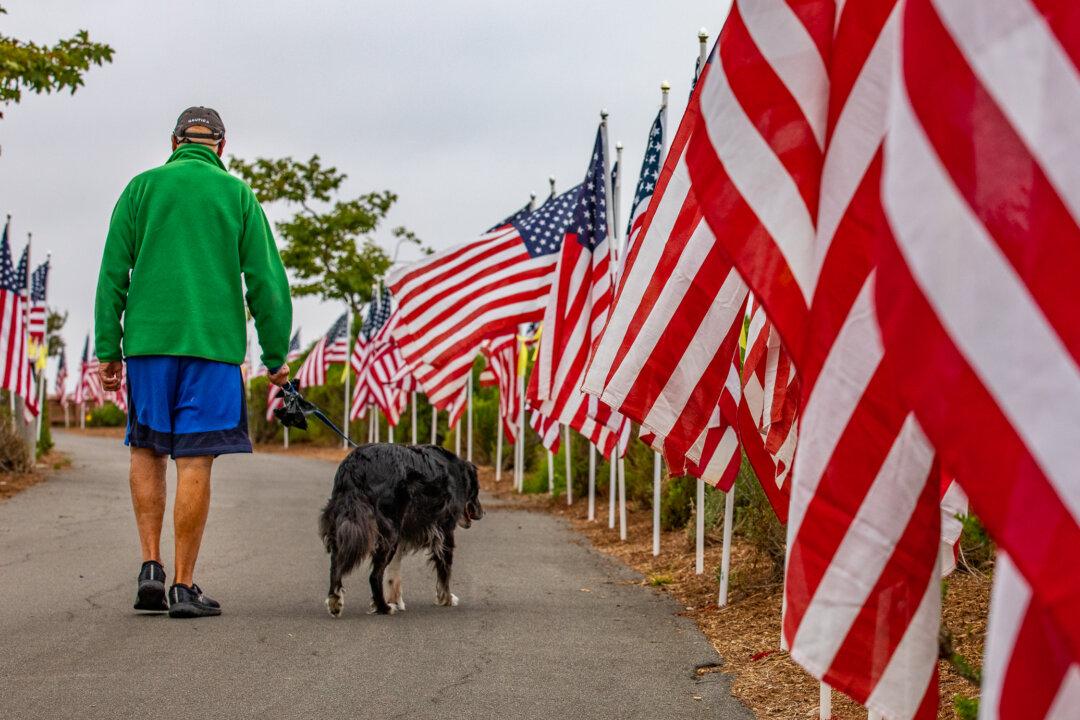The Orange County Board of Supervisors voted to pause the creation of digital vaccination records after more than 700 people gathered at a May 11 board meeting to oppose the move.
A motion to halt any plans of establishing digital vaccination records was approved during a 4–1 vote, with recently elected Supervisor Katrina Foley being the sole dissenter.





